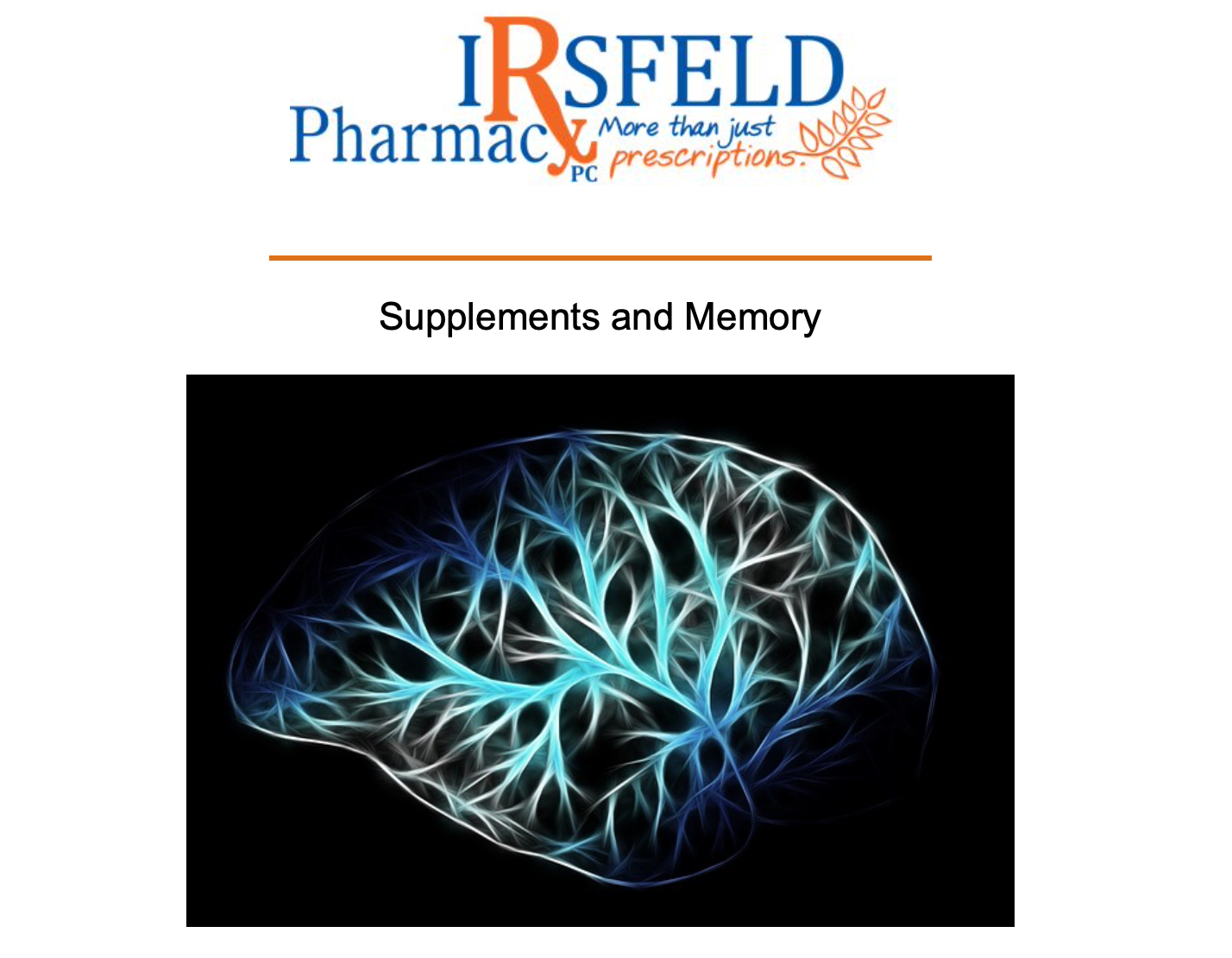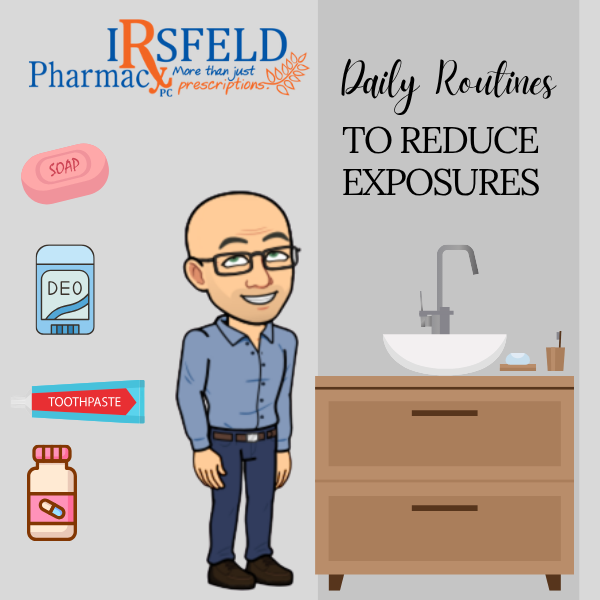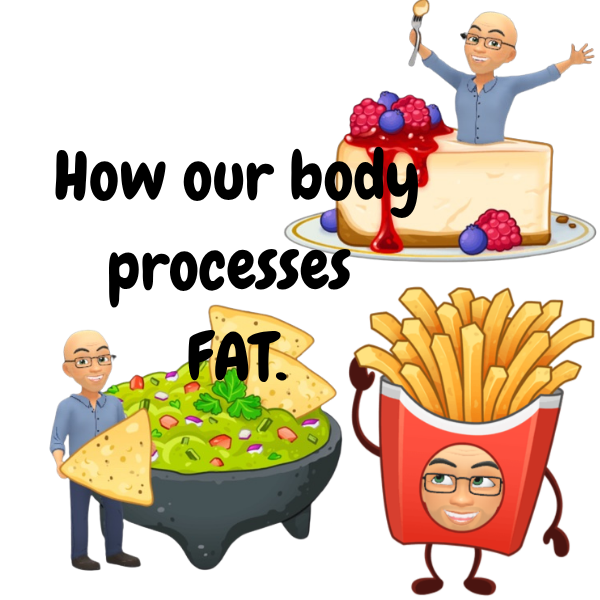We all cherish our memory and want to preserve it...here are some options

One topic of discussion that concerns most individuals is memory. Whether it is dementia, Alzheimer's disease (AD), brain fog, or just forgetting where you left the keys, people are genuinely concerned about their inability to remember things. When a family member or friend might be "starting to lose it, " we hope and pray that it doesn't happen to us. I've written about this topic on several occasions, but I wanted to look at a few studies released on this topic that might help you in your healthcare journey.
Genetics can play a part in this process, but it is not the only factor that influences what goes on in our brains. Risk genes can increase the likelihood of developing AD, and that specific gene is APOE 4e. Only about 20-30% of the population has this gene, with 40-65% of AD patients having this gene. Determinant genes directly cause a disease, but these are extremely rare for AD. Genetic testing is an excellent option if you are concerned, as it is a one-and-done test; once you have the information, it doesn't change, and you can act on the data if needed.
We cannot control the genetic aspect and the fact that we are increasingly aging, but we do have some tools to help avoid or delay the onset of cognitive decline. Blood flow, toxins, nutrition, and dietary supplements can impact how our brain processes information.
A recent study showed that omega-3 fatty acids (fish oil) can be a promising nutrient in dementia. Several studies have examined the relationships between circulating omega-3 and incident dementia with mixed results. In the recent release of new data from the UK Biobank, researchers examined the association in a much larger sample, 267,312 patients. They focused on associations with total omega-3, docosahexaenoic acid (DHA), and non-DHA omega-3. Researchers observed that the total omega-3 status was inversely related to the risk of AD and all-cause dementia (the higher the level of omega 3's, the lower the incidence of AD). The strongest associations were observed for total omega-3 and all-cause dementia. Researchers found stronger associations in men and those aged ≥60 at baseline (vs. those aged 50–59). Thus, in the most extensive study on this topic, researchers confirmed the favorable relationships between DHA and risk for dementia, with evidence that non-DHA omega-3 may also be beneficial. Finally, researchers have better defined the populations most likely to benefit from omega-3-based interventions.
Curcumin is another supplement that has shown benefit in the fight against memory loss. Curcumin inhibits the activation of NF-kB, an inflammatory marker, and amyloid beta, which is linked to neuronal death. Curcumin also inhibits Acetylcholinesterase (AChE) activity, which breaks down acetylcholine, an essential neurotransmitter in our brains for memory. Clinical studies have demonstrated that a specific form of curcumin, BCM-95, can promote cognitive function. The studies reveal how the increased curcumin bioavailability produces higher levels of curcuminoids, enabling healthy inflammatory markers more than other forms of turmeric extract. This healthy stress response promotes healthy cognitive function.
These are two supplements with good data to support their benefit in the memory battle however there are others that can be helpful as well.
Taking supplements is not the only way you can decrease your risk. First, improve your diet, an area that you can easily control and can have a great benefit from. If you had the best car in the world, would you use the best gas to fuel it? If you lose your car, that's unfortunate and bad luck, but you can buy another one. You cannot buy another body. The best diet can be summed up in just seven words, "eat food, not much, and mostly plants."
Avoid ultra-processed food. Eat nuts, fish, minimal grains, vegetables, and lean proteins. Don't drink sodas or pop. If you like wine, drink wine, but only a little. It's essential to try to get pleasure in what you eat. Try to find joy in cooking and food. Food is not just a source of energy. Eat with someone and try to talk and converse during your meal.
Second, try to incorporate omega-3 into your diet. Omega 3s may not delay your dementia, but they certainly won't hurt you and have plenty of other benefits. If you are prone to dementia, omega-3 may give you an extra two years of life without dementia, which is a big deal for many patients.
Remember, there is always time to start taking care of yourself. Starting to make changes in your 60s and 70s is still possible. Is it best to start when you are young? Of course, it is, but don't let age get in your way to becoming the optimal you.
Stopping smoking if you are a smoker is critical. Getting adequate sleep and decreasing stress are two prominent ways to improve cognitive function. Stimulate your brain with healthy dialogue with friends. Stimulate your brain with reading, learning, games, or whatever floats your boat. We talk about sitting as the new smoking; sitting can also influence your brain. We need to watch less TV or get caught up with social media for our brains.
The omega 3 study and some lifestyle thoughts came from a recent podcast I listened to from the Omega Quant company. The topic was Omega 3s and Dementia Risk, and the guest was Dr. Aleix Sala-Vida. Omega Quant has been a great partner for the pharmacy, and their testing kits have helped many of our patients achieve optimal omega-3 levels. If you are interested in testing to optimize your omega-3 levels, please visit my pharmacy team, as they are more than willing to help you.
I hope this gave you some insight into areas to consider when dealing with memory concerns. It is an honor to provide you with information about different ways to obtain optimal health, and I hope to continue to do that in 2024 and for many years to come. All my articles can be found online at our website, www.irsfeldpharmacy.com, or our Facebook page. If you want the article emailed to you directly, call the pharmacy and request to be added to our email list. My podcast, "The Irsfeld Pharmacy Optimal You Podcast," can also be accessed through the website.
Until next time, be vigilant about your health!!












Share On: